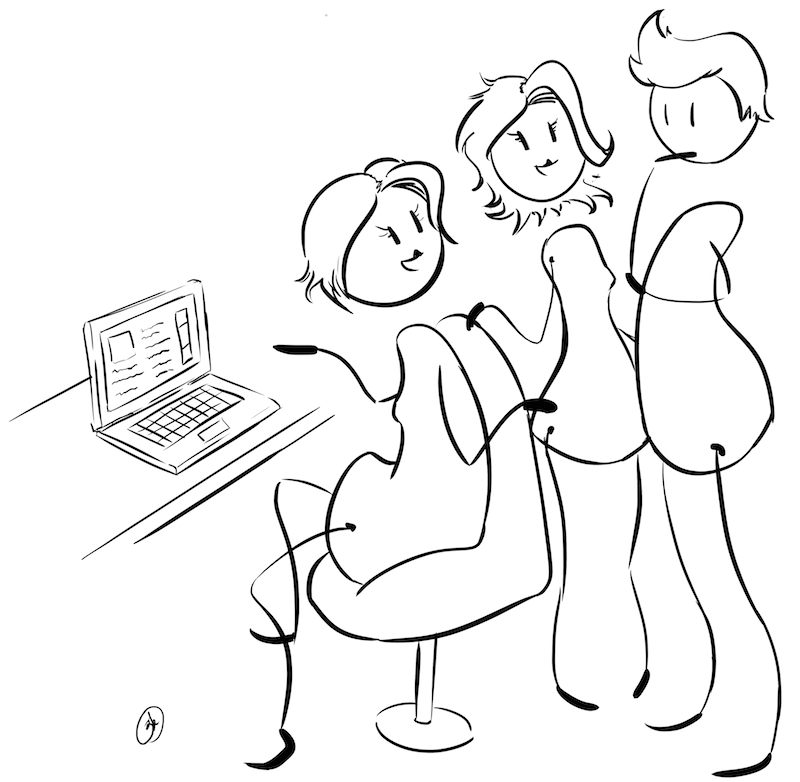Less opinions, more hypotheses
Contents
I really like heated debates. It’s great to discuss different strategies of doing things and struggle until we align on a course of action. A healthy and productive team should have heated debates from time to time. But the main point should not be about being right.
I think a lot on how to make these discussions more productive and how to take the most out of every participant. I’ve been trying to pay attention on how we present our ideas and opinions and how other people react and give feedback.
Communicating our ideas clearly is hard. Sometimes we’re discussing and advocating for the same things and don’t even notice it. Other times we start to get a little mad, start to talk louder and lose patience. This may happen because we have an emotional attachment to our ideas. We’re in for a tough ride when we start to discuss people rather than ideas.
So how could we change the way we discuss things to focus more on the problems and opportunities and less on how we want to address them?
Example scenario
Let’s consider the following scenario where two people discuss a mobile approach for a web app that they are developing.
Person A: I think we should bet on our mobile version. We’re lagging behind with our current version.
Person B: Oh I can get that. How much time would it take to build a mobile version?
Person A: Maybe couple of months. It’s a lot of work to deliver perfect work.
Person B: But that’s too much, we’ll need to delay other important work. I’ve just seen the metrics and we only have 5% of the users that access the app via a mobile browser. Maybe its not worth it.
Person A: Oh but the thing is: if we had a proper mobile version we’d have much more people. They don’t use the mobile version because it’s crappy.
This could take some time to decide and if they aren’t aligned then one of them will leave this discussion unhappy. And how can we know who is right? The thing is: they both can be right. There is no way of knowing without making an experiment.
Changing the way we talk
To try to make these discussions more productive I’m trying to change they way I talk. I’m actually trying to use other vocabulary that focus on validating an hypothesis instead of an opinion. Example:
- The hypothesis on the table is that improving our mobile version will give us more customers
- How can we conduct an experiment to validate it?
- We could send a survey to our current clients asking for mobile interest
- We could add a form to the mobile version saying that we’re working on a new mobile version and we’re looking for early adopters (and check if it generates interest)
- We could develop a basic/small/better mobile version and assess if we start getting more users via mobile
Just by communicating an idea as an hypothesis we’re questioning it. And we open the door for other people to question it. Trying to figure out how to run an experiment can actually be very useful to learn more about the problem at this point.
The good, the bad and the ugly
If we start from a point where we question our idea, then we can start right way by trying to identify the idea’s shortcomings. It’s all about trade offs. And if we’re honest about them we can discuss them from the start.
We should also ask ourselves the following questions:
- What’s the cost of doing nothing? If we don’t follow this new idea what will we have to forfeit? Is that acceptable?
- What’s the cost of doing something? We should also consider the cost of following an idea. If in fact the mobile version is successful, we’ll need to start considering a mobile implementation for all future features. This means that we’ll need to make the frontend team slower while delivering more. We’ll have to purchase mobile equipments for tests and will have to decide what will we actually support. Again, it’s all about trade offs.
By doing quick experiments we can iterate and get better step by step.
Can too much experimentation be bad?
If we’re considering a development team we need to be careful with too much experimentation. I’ve seen this several times when the development team isn’t able to keep up with the backlog, and so all work has a smaller scope. We’re always doing a bare minimal. Could be for experiments or because the business demands it. Either way we may be going towards an end product that starts to feel half-baked.
Developers may start to lose satisfaction because they may feel that they aren’t delivering polished work or because they don’t feel that they’re having impact.
Summary
Changing the way we talk to focus more on the problems and opportunities on the table instead of what we think of them seems to be very promising. It’s a bit of a mindset shift and so it may be hard to acquire.
And sometimes the best way may be to bypass all that and just follow our instinct. It’s never easy to pick a direction when we don’t know where we’re going. But the more tools we have on our tool belt, the better.
